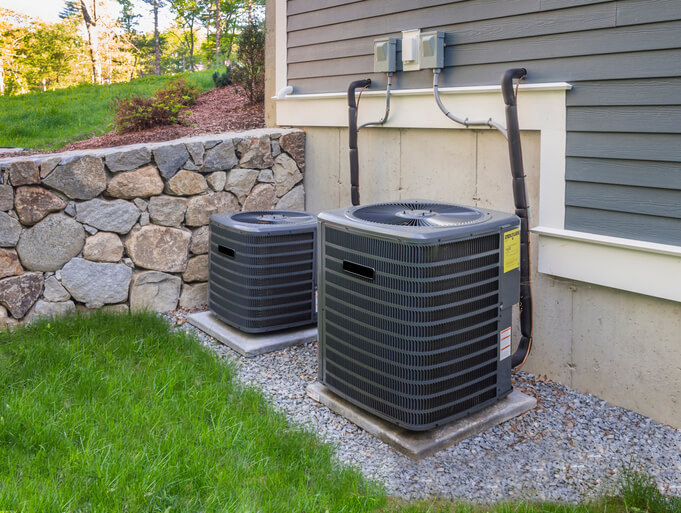Residential HVAC units are essential for comfortable living. HVAC stands for Heating, Ventilation, and Air Conditioning. These units help control the temperature in your home.
What is an HVAC Unit?
An HVAC unit is a system that heats and cools your home. It also helps with ventilation. This means it can improve the air quality inside your house.
Components Of An Hvac Unit
An HVAC system has many parts. Here are the main components:
- Thermostat: The control panel for your HVAC unit.
- Furnace: Heats the air during cold weather.
- Air Conditioner: Cools the air during hot weather.
- Ductwork: Channels that carry air to different rooms.
- Vents: Openings that let air into rooms.
- Filters: Clean the air before it enters the house.
How Does an HVAC Unit Work?
An HVAC system works by moving air. It heats or cools the air and then sends it through ducts. The air comes out of vents into your rooms.
Heating
In winter, the furnace heats the air. The warm air travels through the ducts. It comes out of the vents and warms your home.
Cooling
In summer, the air conditioner cools the air. The cool air travels through the ducts. It comes out of the vents and cools your home.

Benefits of an HVAC Unit
Having an HVAC unit offers many benefits. Here are some:
Comfort
An HVAC unit keeps your home at a comfortable temperature. You can stay warm in winter and cool in summer.
Air Quality
An HVAC unit improves the air quality in your home. It filters out dust, pollen, and other particles.
Energy Efficiency
Modern HVAC units are energy efficient. They use less energy to heat and cool your home. This can save you money on your energy bills.
Choosing the Right HVAC Unit
Choosing the right HVAC unit is important. Here are some factors to consider:
Size
The size of the unit should match the size of your home. A unit that is too small won’t heat or cool your home properly. A unit that is too big will waste energy.
Energy Efficiency
Look for an energy-efficient unit. These units use less energy and can save you money.
Features
Some units have extra features. These can include smart thermostats, air purifiers, and humidity control. Choose the features that are most important to you.
Maintaining Your HVAC Unit
Regular maintenance is important for your HVAC unit. Here are some tips to keep your unit running smoothly:
Change Filters
Change the filters regularly. This helps keep the air clean and the unit running efficiently.
Clean Ducts
Have your ducts cleaned every few years. This removes dust and debris that can block air flow.
Check Thermostat
Make sure your thermostat is working properly. This helps keep your home at the right temperature.
Schedule Professional Maintenance
Have a professional check your HVAC unit once a year. They can find and fix any problems before they become serious.
Common HVAC Problems
Sometimes, your HVAC unit may have problems. Here are some common issues and how to fix them:
No Heating Or Cooling
If your unit isn’t heating or cooling, check the thermostat. Make sure it is set to the right temperature. If that doesn’t work, call a professional.
Strange Noises
If your unit is making strange noises, it could be a problem with the fan or motor. Turn off the unit and call a professional.
Poor Air Flow
If the air flow is weak, check the filters and ducts. They may be dirty or blocked. Clean or replace them as needed.

Frequently Asked Questions
What Is A Residential Hvac Unit?
An HVAC unit controls heating, ventilation, and air conditioning for homes.
How Does An Hvac System Work?
HVAC systems circulate air, regulate temperature, and manage humidity in your home.
How Long Do Hvac Units Last?
Residential HVAC units typically last 15 to 20 years with proper maintenance.
How Often Should Hvac Filters Be Changed?
Change HVAC filters every 1-3 months to maintain optimal performance.
Conclusion
An HVAC unit is essential for a comfortable home. It heats, cools, and improves the air quality. Choose the right unit, maintain it well, and fix any problems quickly. This will ensure your home stays comfortable all year round.
Frequently Asked Questions (FAQs)
What Does Hvac Stand For?
HVAC stands for Heating, Ventilation, and Air Conditioning.
How Often Should I Change My Hvac Filters?
Change your filters every 1-3 months, depending on usage and air quality.
Can I Install An Hvac Unit Myself?
It is best to have a professional install your HVAC unit. This ensures it is done correctly and safely.
How Can I Make My Hvac Unit More Energy-efficient?
Regular maintenance, using a programmable thermostat, and sealing ducts can improve efficiency.
What Should I Do If My Hvac Unit Stops Working?
Check the thermostat and filters first. If the problem persists, call a professional.
